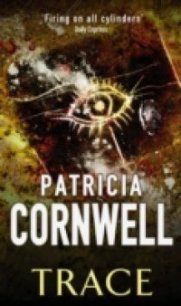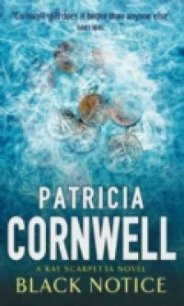All That Remains - Cornwell Patricia (серия книг TXT) 📗
"Not necessarily. People aren't all that observant. When they leave their ride at the airport or are returning from a trip, the only thing on their mind is hauling their bags, catching their plane, or getting the hell home. Even if someone noticed, it's not likely he's going to report it to Security. Security couldn't do nothing anyway until the owner returned, then it would be up to him to report the stolen plates. As for the actual theft of the plates, that wouldn't be very hard. You go to the airport after midnight and there's not going to be anybody around. If it was me, I'd just walk into the lot like I was looking for my car, then five minutes later I'd be heading out of there with a set of plates in my briefcase."
"And that's what you think happened?"
"My theory is this," he said. "The guy who asked you for directions last week wasn't no detective, FBI agent, or spook out spying. He was somebody up to no good. Could be a drug dealer, could be almost anything. I think the Oak gray Mark Seven he was in is his personal car, and to be on the safe side, when he goes out to do whatever he's into, he switches plates in the event his ride is spotted in the area, maybe by cops out on patrol, whatever."
"Rather risky if he gets pulled for running a red light, pointed I out. "The license number would come back to someone else."
"True. But I don't think he plans on getting pulled. I think he's more worried about his car being spotted because he's out to break the law, something's going to go down and he don't want to take the chance his own tag number's going to be on the street when it does."
"Why doesn't he just use a rental car, then?"
"That's just as bad as having his own plate number out there. Any cop knows a rental car when he sees it. All tag numbers in Virginia begin with R. And if you track it down, its going to come back to whoever rented it. Switching tags is a better idea if you're smart enough to figure out a safe routine. It's what I'd do, and I'd probably resort to a long-term parking lot. I'd use the tags, then take them off my car and put my tags back on. I'd drive to the airport, walk out into the lot after dark, make sure no one's looking, and put the tags back on the car I'd stolen them from."
"What if the owner's already returned and found his tags stolen?"
"If the ride's no longer in the lot, I'd just pitch the tags in the nearest Dumpster. Either way I can't lose."
"Good Lord. The man Abby and I saw that night might be the killer, Marino."
"The squirrel you saw wasn't no businessman who was lost or fruitcake tailing you," he said. "He was up to something illegal. That don't mean he's a killer."
"The parking sticker…"
"I'm gonna track that down. See if Colonial Williamsburg can supply me with a list of everybody who's been issued one."
"The car Mr. Joyce saw going down his road with the headlights off could have been a Lincoln Mark Seven," I said.
"Could have been. Mark Sevens came out in 1990. Jim and Bonnie was murdered in the summer of 1990. And in the dark, a Mark Seven wouldn't look all that different from a Thunderbird, which was what Mr. Joyce said the car he saw looked like."
"Wesley will have afield day with this," I muttered, incredulous.
"Yeah," Marino said. "I got to call him."
March came in with a whispered promise that winter would not last forever. The sun was warm on my back as I cleaned the windshield of my Mercedes while Abby pumped gas. The breeze was gentle, freshly scrubbed from days of rain. People were out washing cars and riding bikes, the earth stirring but not quite awake.
Like a lot of service stations these days, the one I frequented doubled as a convenience store, and I bought two cups of coffee to go when I went inside to pay. Then Abby and I drove off to Williamsburg, windows cracked, Bruce Hornsby singing "Harbor Lights" on the radio.
"1 called my answering machine before we left," Abby said.
"And?"
"Five hang-ups."
"Cliff?"
"I'm willing to make a bet," she said. "Not that he wants to talk to me. I suspect he's just trying to figure out if I'm home, has probably cruised past my parking lot a number of times, too, looking for my car."
"Why would he do that if he's not interested in talking to you?"
"Maybe he doesn't know that I've changed my locks."
"Then he must be stupid. One would think he would realize you would put two and two together when his series ran."
"He's not stupid," Abby said, staring out the side window.
I opened the sunroof.
"He knows I know. But he's not stupid," she said again. "Cliff's fooled everyone. They don't know he's crazy."
"Hard to believe he could have gotten as far as he has if he's crazy," I said.
"That's the beauty of Washington," she replied cynically. "The most successful, powerful people in the world are there and half of them are crazy, the other half neurotic. Most of them are immoral. Power does it. I don't know why Watergate surprised anyone."
"What has power done to you?"
I asked.
"I know how it tastes, but I wasn't there long enough to get addicted."
"Maybe you're lucky."
She was silent.
I thought of Pat Harvey. What was she doing these days? What was going through her mind? "Have you talked to Pat Harvey?"
I asked Abby.
"Yes."
"Since the articles ran in the Post?"
She nodded.
"How is she?"
"I once read something written by a missionary to what was then the Congo. He recalled encountering a tribesman in the jungle who looked perfectly normal until he smiled. His teeth were filed to points. He was a cannibal."
Her voice was flat with anger, her mood suddenly dark. I had no idea what she was talking about.
"That's Pat Harvey," she went on. "I dropped by to see her before heading out to Roanoke the other day. We talked briefly about the stories in the Post, and I thought she was taking it all in stride until she smiled. Her smile made my blood run cold."
I didn't know what to say.
"That's when I knew Cliff's stories had pushed her over the edge. Deborah's murder pushed Pat as far as I thought she could go. But the stories pushed her further. I remember when I talked to her I had this sense that something wasn't there anymore. After a while I figured out what's not there is Pat Harvey."
"Did she know her husband was having an affair?"
"She does now."
"If it's true," I added.
"Cliff wouldn't write something that he couldn't back up, attribute to a credible source."
I wondered what it would take to push me to the edge. Lucy, Mark? If I had an accident and could no longer use my hands or went blind? I did not know what it would take to make me snap. Maybe it was like dying. Once you were gone you didn't know the difference.
We were at Old Towne shortly after noon. The apartment complex where Jill and Elizabeth had lived was unremarkable, a honeycomb of buildings that all looked the same. They were brick with red awnings announcing block numbers over the main entrances; the landscaping was a patchwork of winter-brown grass and narrow margins of flowerbeds covered in woodchips. There were areas for cookouts with swing sets, picnic tables, and grills.
We stopped in the parking lot and stared up at what had been Jill's balcony. Through wide spaces in the railing two blue-and-whitewebbed chairs rocked gently in the breeze. A chain dangled from a hook in the ceiling, lonely for a potted plant. Elizabeth had lived on the other side of the parking lot. From their respective residences the two friends would have been able to check on each other.
They could watch lights turn on and off, know when the other got up and went to bed, when one was home or not.
For a moment, Abby and I shared a depressed silence.
Then she said, "They were more than friends, weren't they, Kay?"


